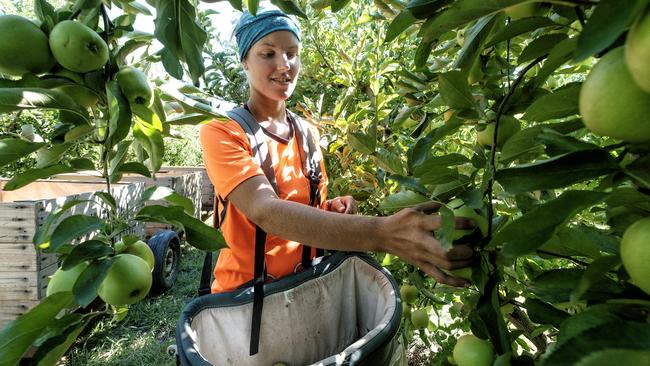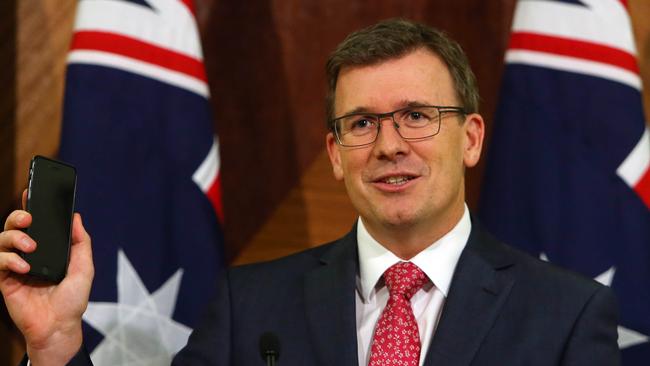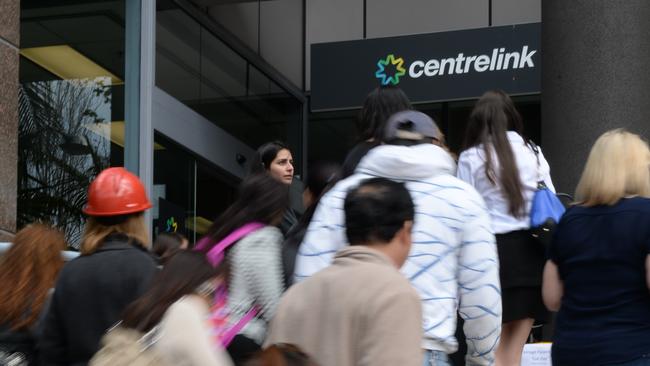Peta Credlin on how welfare dependence is ruining our economy
WELFARE should be for those who deserve it — the rest can get off their bums, writes Peta Credlin.

Opinion
Don't miss out on the headlines from Opinion. Followed categories will be added to My News.
MY dad left school and started work at just 13. He was born in 1936 and lived his life in the country so I guess he wasn’t alone. He worked hard and died young.
He wouldn’t cop complaining and always told us we needed to learn first and work hard second because “the world doesn’t owe you a living”.
With about five million Australians, over a fifth of the population, relying on others for much if not all of their income, I sometimes think men like my dad belonged to another Australia.
Current government statistics reveal that there are at least two and a half million old-age pensioners, nearly a million disability support pensioners, almost as many again on unemployment benefits, and about 300,000 each on the carers’ pension, parenting pension and youth allowance. And those are just the main welfare benefits.
This is why 80 per cent of all income taxes have to be ploughed back into social security payments. It explains why 40 per cent of all households get more back in benefits than they pay in tax — while the top 20 per cent of earners are slugged for 60 per cent of total income tax.
Who can begrudge older people who have worked hard all their lives taxpayer support? And who could complain about someone with a serious disability being adequately funded? I believe we can’t help our disabled Australians enough.
But what about the nearly 40 per cent of people on the disability pension for depression or muscular- skeletal problems — conditions that can usually be fixed and that don’t preclude some form of work?
Who can doubt that too many people have got themselves into the ranks of beneficiaries and too few people are now in the ranks of contributors?
Australia, we have a problem!

There are two issues here. First, the entitlement mindset — “my right” to be supported by the government; and second, the compassion mindset — the “community’s obligation” to support people doing it tough.
Well, sure, if there really is nothing you can do for yourself, the government has to step in.
But governments that step in to help people who could and should be helping themselves weaken people’s character and create a great deal of resentment among working families who hate being ripped off.
The “backpacker tax” was illuminating. The debate was that fruit would rot on the trees because without backpackers — who would allegedly stay away in droves in disgust at the tax — our seasonal industries would grind to a halt.
What no one was talking about was the fact that thousands of out- of-work Aussies were not prepared to do these jobs.
So scared are we of a bit of hard work that we have become a nation of individuals who think “someone else should have to carry me”.
Why do we pay unemployment benefits to people in country towns when there are unskilled jobs available that farmers can’t fill?

Why is it that 3000 people in Yarrabah, 40 minutes from Cairns, live almost entirely on welfare when that tourism capital can’t get people to work as cleaners in its hotels?
This is wrong. It’s sapping our moral fibre as a nation and weakening our economic strength. Yet when the Coalition government proposed modest reforms during the last term of parliament, including insisting that young people “learn or earn” rather than leave school and go on the dole, and seeking to raise over many years the pension age to 70, there was a barrage of protest, including from Liberal premiers.
A country that has fewer and fewer productive people and more and more people who are living off them is doomed to fail.
Welfare recipients will never think they’re getting enough and taxpayers will always think they’re paying too much, a society with as many beneficiaries as contributors is likely to be riddled with resentment.
It has to be said: we need to distinguish between the deserving and the undeserving. Those who are having a go but struggling to make ends meet deserve help; those who are having a lend of the rest of us need to get off their backsides.
That’s why Work for the Dole was such an important initiative. It said to fit, working-age people that there’s no such thing as something for nothing: you will work, preferably for a wage but, if not, for the dole.
Thankfully, at least some in government “get it” on this issue.
This week, Human Services Minister Alan Tudge admitted that not one person in the past year had been penalised for not complying with the rules requiring people to seek work. He has spent much of his working life on a crusade against passive welfare. First when he worked for indigenous leader Noel Pearson and later as Tony Abbott’s junior minister for indigenous affairs.
Now he is in the perfect portfolio to build lasting change and if Bill Shorten had any sense, he would drop “opposition for opposition’s sake” and get on board. Making the welfare system fairer to taxpayers would appeal to many Labor voters and would be just what’s expected of a smart, centre-right government.


